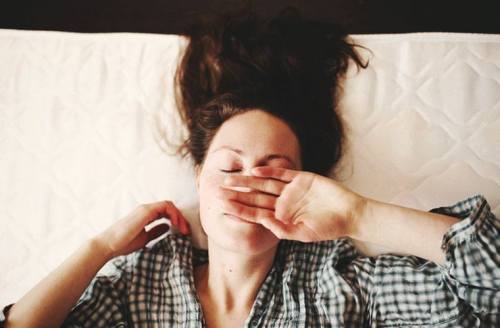Is anxiety the most severe symptom of a hangover?
Sure, headaches are rough. But when it comes down to it, anxiety might just be the most severe symptom of a hangover. Here's why.

Have you ever woken up after having one too many wellness-guru–approved cocktails feeling panicked about what you texted your ex or posted on Snapchat the night before? While the headache-laden physical aftermath of drinking is never magical (unlike the glasses from which you sipped), a heightened sense of anxiety might just be the worst hangover symptom around.
Anxiety is actually a common hangover symptom. While the initial effects of a drink—when the alcohol sends a rush of dopamine to the reward center of the brain—might feel good, Aparna Iyer, MD, told Self the sensation is unfortunately short-lived: After that rush wears off, your good mood and carefree attitude totally shifts—enter hangxiety.
“The feelings that you have after you drink alcohol, or even the day after, can result in a whole range of feelings and moods and anxiety symptoms.”
“The feelings that you have after you drink alcohol, or even the day after, can result in a whole range of feelings and moods and anxiety symptoms…from panic to feeling depressed to feeling impulsive to feeling agitated and irritable,” Dr Iyer said.
And if having an occasional drink momentarily tempers your anxiety, you might consider that feeling to be the calm before the proverbial storm. Dr. Iyer said that if you’re prone to anxiety, using alcohol to quiet your symptoms can actually lead them fully reemerge, potentially to a more severe effect.
In order to avoid self-medicating your anxiety with alcohol (and thus prevent feeling super anxious the day after) consider focusing on drinking more mindfully. Or, stay sober altogether.
Meditating for as little as 11 minutes has been shown to cut alcohol cravings, and with the rise of the sober social scene, there’s really no need to be popping bottles in the first place.
This surprising sport could combat anxiety and depression. Into essential oils? These six options can help out when you’re in need of a quick calm.








